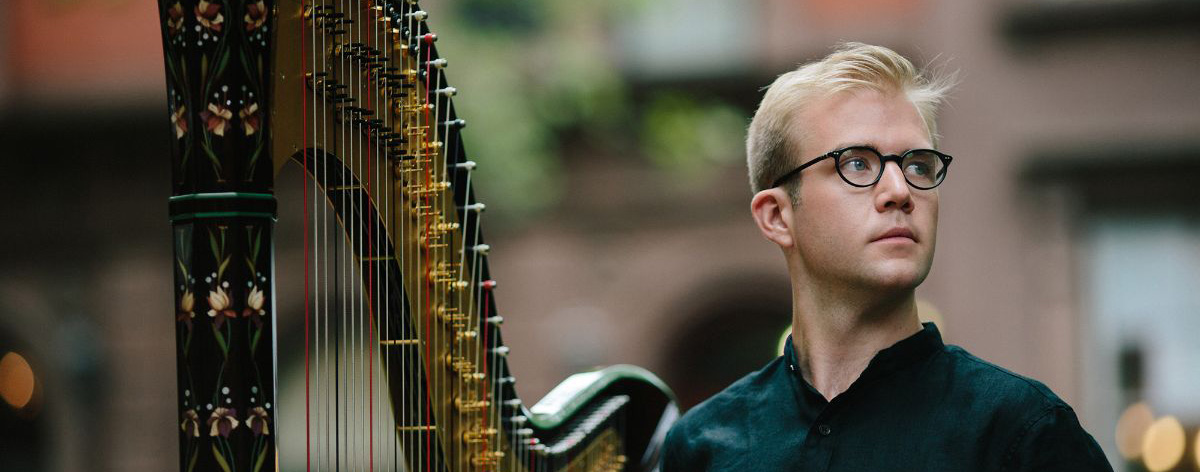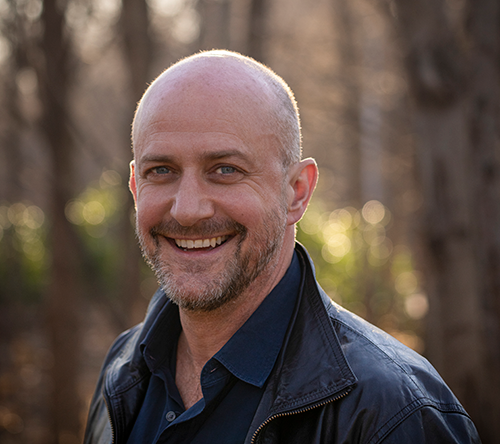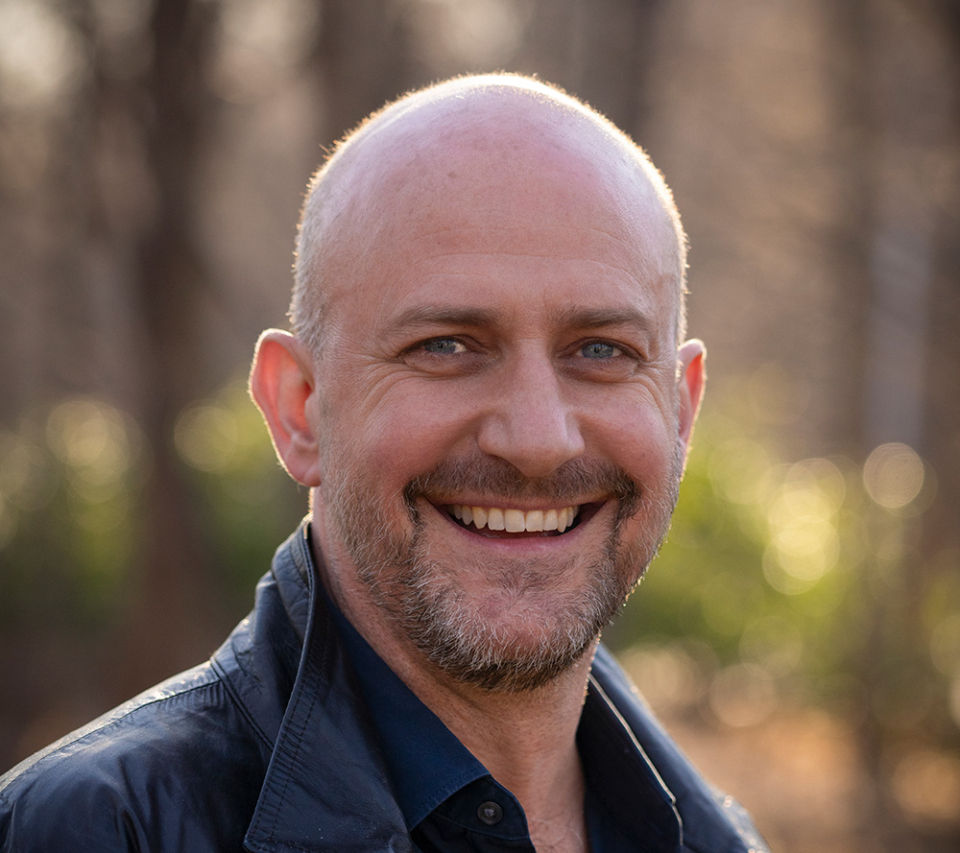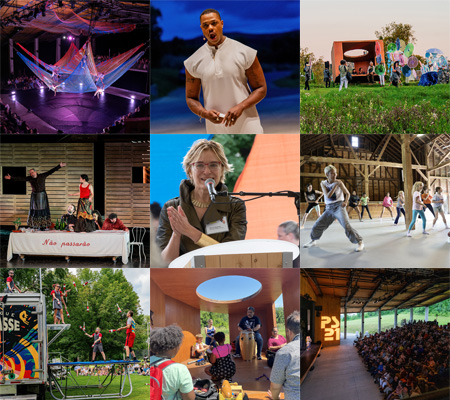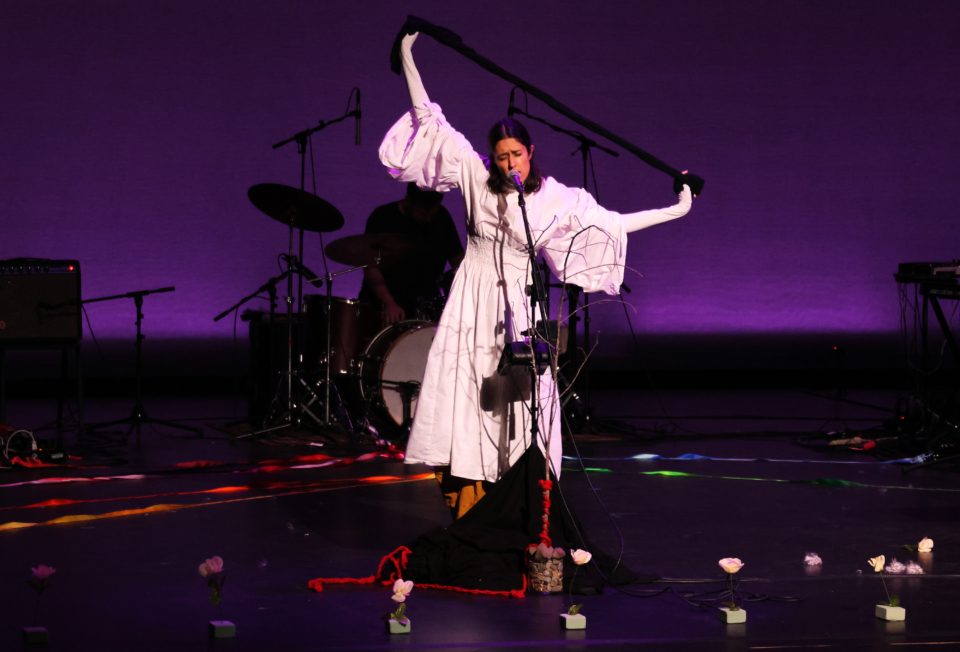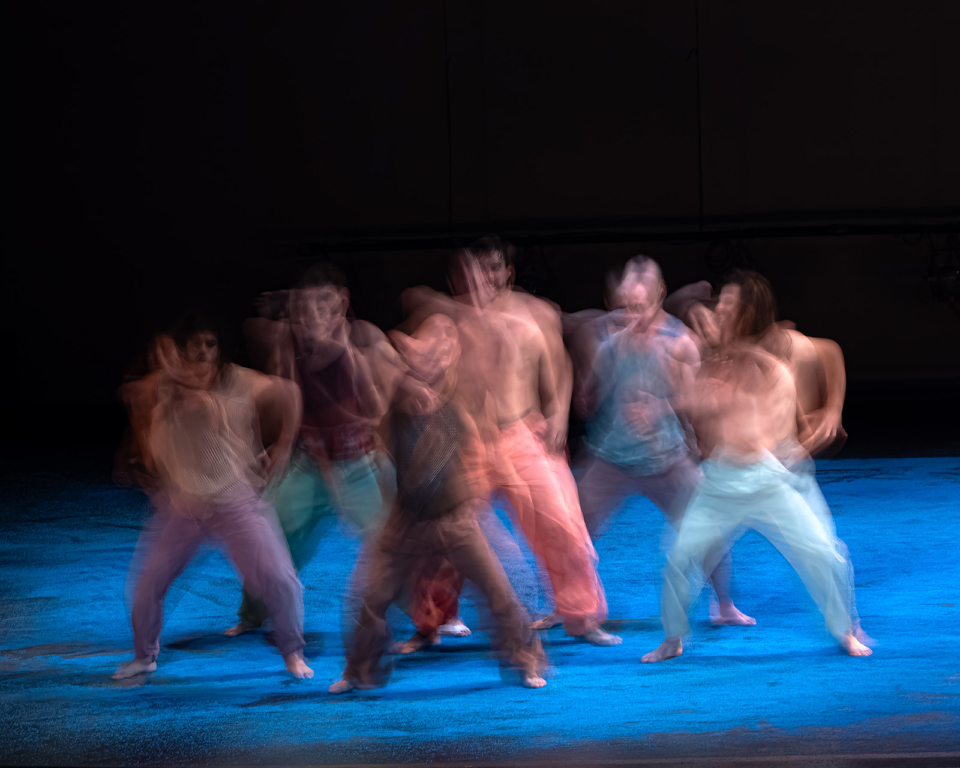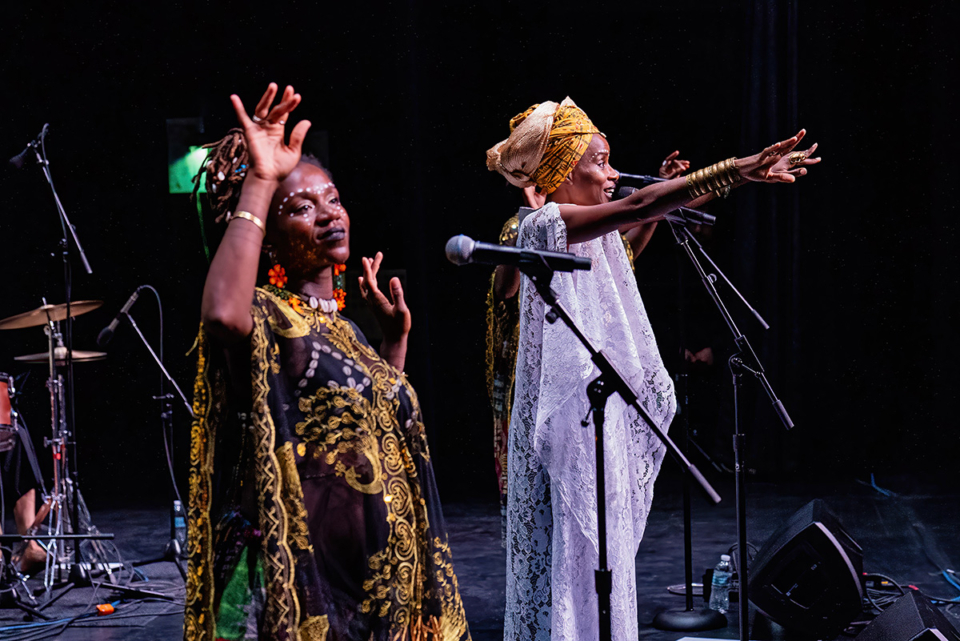A conversation with harpist Parker Ramsay
Our Music Programs Director’s Q&A with Parker Ramsay, the pathbreaking harpist joining the Quatuor Van Kuijk at PS21 on March 1st.
Matthew Gold: Your work shows a deep commitment to both modern and period harps, and in your career you have combined an interest in early music with newly commissioned works. Can you speak about your involvement with period instruments and how period and modern harps differ?
Parker Ramsay: I think there’s a shared philosophy in my approach to modern and period instruments in coming up with music ex nihil. The amount of repertoire specifically for early harps is negligible, so there’s a necessary amount of creativity and research that goes into coming up with both historically plausible and aesthetically attractive projects. Likewise, there are different techniques and standards that are applied which veer from the concert harp’s normative inheritance in the 19th century French harp tradition. More succinctly, be it contemporary commissioning or projects with early harp, there’s a sense in which I leave the traditional harp pedagogy at the door, so as to leave myself open to a more objecting mode operating with the instruments.
MG: Your appearance at PS21 will be with the Quatuor Van Kuijk, with whom you have collaborated in the past. What is it like to work with a string quartet, and specifically with this group?
PR: Honestly, they’re a dream to work with. They are seasoned performers, but also seasoned collaborators who aren’t afraid to try new things and tackle repertoire with critical insight and patience. They have a wonderfully unpretentious approach to what they do, which is refreshing. I look forward to an ongoing collaboration in the coming years.
MG: This program will feature works by Debussy, Fauré, and Caplet, composers perhaps most closely associated with the Impressionist movement of late 19th and early 20th century France. How has this tradition played a role in your musical life?
PR: Well, it’s home turf repertoire for harpists. The way we learn to get around the instrument, our concepts of color and expression are all rooted in impressionist and symbolist works from France. Indeed it was in this period that what we know and think of as “French” harp technique was born. To be a harpist is to live and breathe this music, whether you like it or not.
MG: You are presenting a suite of movements from The Street by Nico Muhly, with a text by Alice Goodman. How did this piece come about, and what was it like to collaborate with the artists who created it? What is the role of text in this work?
PR: The piece came about as a result of my collaboration with King’s College, Cambridge following my recording of Bach’s Goldberg Variations. We began talking about what a new commission for solo harp would look like when the presenting body (King’s College) is the Mother Church for Anglican choral music (and where I trained as an undergraduate as organ scholar).
It was apparent it would need to be a sacred work, and one which could potentially involve the choral scholars of the college. It was also apparent that it would need to be premiered during Holy Week. So, I asked Nico Muhly about composing a Stations of the Cross, as he has home turf in both Anglican choral circles and contemporary music more widely. I also pitched the idea of asking Rev. Alice Goodman (who was chaplain at Trinity College Cambridge, while I was an undergraduate) about composing texts. They both consented, thankfully and they crafted a work whereby 14 written meditations on the Stations of the Cross function as a libretto, and harp movements act as literal settings of the arcs and narrative of the texts. The work is fascinating as it can be done as a solo work, a work with narrator, a semi-staged work with actor and solo singer, etc. I’ve also performed it liturgically at points, and on the other end of the spectrum with Mark Morris Dance Group, who are touring the work over the next few seasons.
MG: What initially drew you to the harp? What were some of your early experiences with the instrument?
PR: My mother is a harpist and pedagogue of note, specializing in working with preparatory students. Harp music was my primary exposure to music in fetu, so I’m sure there is an extent to which I couldn’t escape it. I had played the instrument my entire life and studied with some very good teachers in Europe when I was living overseas, but I didn’t think about doing it as a career until my early 20s. My primary instrument in my teenage and undergraduate years, and for my first masters degree, was the organ, taking me to King’s College, Cambridge as an organ scholar. This was followed by intense graduate work at Oberlin, where I did a masters and an artist diploma in historical keyboards and won an international competition in Amsterdam. And yet I put a burgeoning recital career at the organ bench to bed as I wished to play more contemporary and chamber music and see what would happen if I launched myself headlong into the instrument that got my mind going every morning: the harp, and its need for modernizing and exposure (as it still remains oft-neglected). Many days I’m not certain I made the right choice or if in fact I’m the right person to do it… but here I am. I can’t really turn back and so I dwell less on the “what” and “why” and more on the “how.”


